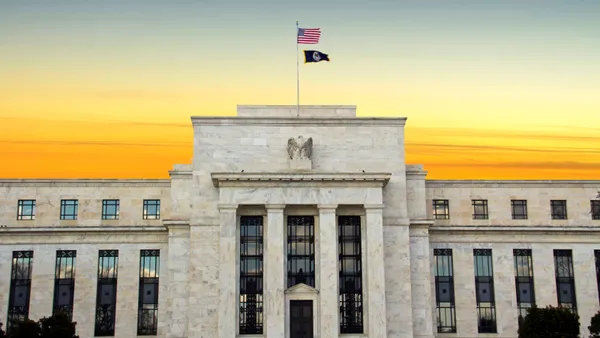Dive Brief:
- The Federal Trade Commission reached a $3 million settlement with cash advance provider FloatMe last week. The company engaged in deceptive practices, including making it difficult to cancel a monthly subscription fee and discriminating against consumers who receive public assistance, the FTC said in a Jan. 24 press release.
- Under the terms of the settlement, FloatMe and its co-founders Ryan Cleary and Joshua Sanchez will set aside $3 million to refund customers, make it easier to cancel subscriptions, stop its deceptive marketing and institute a fair lending program, the FTC release said.
- “FloatMe lured consumers in with false promises of free money advances, and then used dark patterns to make it difficult for consumers to cancel,” Samuel Levine, director of the FTC’s Bureau of Consumer Protection, said in the release.
Dive Insight:
San Antonio, Texas-based FloatMe was founded in 2020 to provide cash advances via a mobile app, according to the company’s LinkedIn page.
The FTC determined that the company often failed to live up to its own advertising. In exchange for a $1.99 monthly membership fee, consumers were promised instant access to up to $50 in cash advances. But the agency found that consumers would have to wait up to three days to access just $20. Instant access was offered, but for a $4 fee, the release said.
Unsatisfied FloatMe customers found it difficult to cancel their subscriptions, the FTC said in the release. The agency cited an internal communication by Sanchez in which he said the company’s cancellation procedure “make[s] it difficult for someone to quit.”
The FTC, led by Chair Lina Khan, has set its sights on “dark patterns,” which make it difficult to cancel recurring payments. The federal agency proposed a rule in March that would update the 1973 Negative Option Rule, and include a “click to cancel” provision to make it as easy to cancel recurring payments as it is to sign up.
The FTC and FloatMe did not immediately respond to requests for comment on the settlement.
FloatMe’s discrimination against consumers on public assistance is just one instance of low-income consumers being harmed by payment apps. That’s according to a research paper from a Georgia State University emeritus law professor, Mark Budnitz, who wrote an analysis asserting that existing laws lack protections to help those with the least amount of money. The paper was published in a winter 2023 issue of the Georgetown Journal on Poverty Law & Policy.
“Current laws do not adequately protect low-income consumers,” Budnitz’s paper said. “Legislators and agencies need to update statutes and regulations.”











